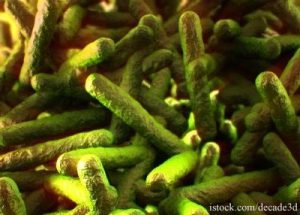In the wake of a deadly Listeria outbreak, the federal government has filed a lawsuit against Wholesome Soy Products Inc. The suit, filed April 3 in U.S. District Court, Northern District of Illinois, seeks to enjoin Wholesome Soy from distributing food in the future.
 Wholesome Soy products killed two people and sickened three others in 2014. The company has not been making or distributing food since agreeing to a November 7 request by the U.S. Food and Drug Administration to halt production. But the complaint states the government believes that Wholesome Soy poses a future threat of producing foods that are adulterated if they are not restrained
Wholesome Soy products killed two people and sickened three others in 2014. The company has not been making or distributing food since agreeing to a November 7 request by the U.S. Food and Drug Administration to halt production. But the complaint states the government believes that Wholesome Soy poses a future threat of producing foods that are adulterated if they are not restrained
From June to August 2014, five people in Illinois and Michigan developed listeriosis, two of them died. During interviews, two of the surviving patients said they ate bean sprouts before they become ill.
On August 12, officials from the U.S. Food and Drug Administration (FDA) begin a three-week routine inspection of Wholesome Soy Products Inc. on W. 40th St in Chicago.
During the inspection, the FDA found Listeria in samples of mung bean sprouts and sprout irrigation water and food safety violations for unsanitary conditions and poor equipment maintenance.
On August 28, the FDA notified Wholesome Soy of confirmed test results that are positive for Listeria. The company agreed to temporarily halt production of mung bean sprouts and perform a voluntary recall of the sprouts by calling its customers.
On September 15, the company resumed production of mung bean sprouts, saying it has cleaned and sanitized the facility and the sprouts have tested negative for Listeria according to an independent consultant the company has hired.
On September 25, a Whole Genome Sequencing analysis of the Listeria isolated from mung bean sprouts, sprout irrigation water and environmental swabs from the facility, reveals that the strains are highly related to the strain isolated from those who became ill.
On October 7, FDA investigators began a follow-up inspection of the Wholesome Soy facility. They collected samples of mung bean sprouts, soy bean sprouts, tofu; spent irrigation water, seeds and more environmental samples.
On October 14, Wholesome Soy ceased tofu and soy drink production, but continued to produce and distribute sprouts.
On October 16, nine of the environmental samples taken October 7 are positive for Listeria. On November 3, Whole Genome Sequencing analysis of the nine samples indicates they are highly related to the Listeria from the samples collected from the facility in August and September, and to samples from the five case patients.
On November 7, the Centers for Disease Control and Prevention (CDC) announced the outbreak and Wholesome Soy verbally agreed to close its facility, cease production and distribution of sprouts, and recall sprouts that are already on the market. But a public recall is not announced.
Since that time, Wholesome Soy has not done enough to mitigate the problem, according to the complaint. “While Defendants have made some corrections, they have failed to institute practices and procedures necessary to ensure that the facility can receive, process, manufacture, prepare, pack, hold, and distribute food under sanitary conditions and that [Listeria] is eradicated from the facility.”




